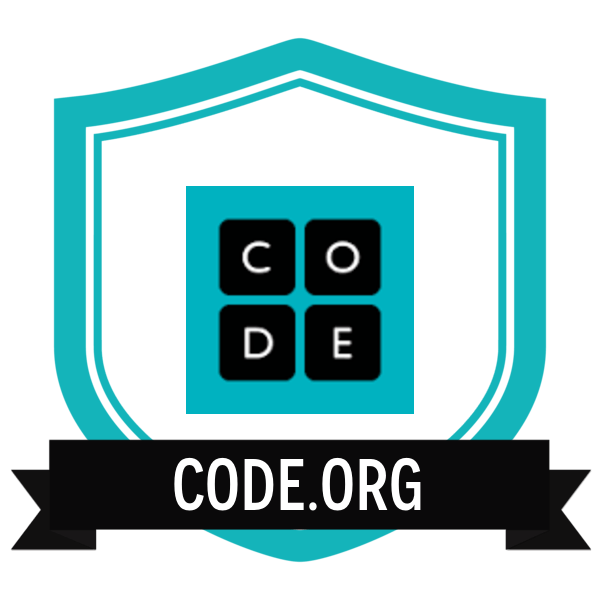Mr. Hahn's Classroom
To learn more about each course I teach, click on the course links to the right to access the course syllabus.
APP DEVELOPMENT
(Computer Science Discoveries)
Computer Science Discoveries (CS Discoveries) is an introductory computer science course that empowers students to create authentic artifacts and engage with computer science as a medium for creativity, communication, problem-solving, and fun.
During this course, we will cover:
- Problem-Solving: Problem Solving and Computing is a highly interactive and collaborative introduction to the field of computer science, as framed within the broader pursuit of solving problems. You’ll practice using a problem-solving process to address a series of puzzles, challenges, and real-world scenarios. Next, you’ll learn how computers input, output, store, and process information to help humans solve problems. The unit concludes with a project in which you design an application that helps solve a problem of your choosing.
-
The Design Process: This unit introduces the broader social impacts of computing. Through a series of design challenges, you will learn how to better understand the needs of others while developing a solution to a problem. The second half of the unit consists of an iterative team project, during which teams have the opportunity to identify a need that they care about, prototype solutions both on paper and in App Lab, and test solutions with real users to get feedback and drive further iteration.
-
Data & Society: This unit is about the importance of data in solving problems and highlights how computers can help in this process. The first chapter explores different systems used to represent information in a computer and the challenges and trade-offs posed by using them. In the second chapter, you’ll learn how collections of data are used to solve problems, and how computers help to automate the steps of this process. The chapter concludes by considering how the data problem-solving process can be applied to an area of your choosing.
-
Physical Computing: This unit explores the role of hardware platforms in computing and how different sensors can provide more effective input and output than the traditional keyboard, mouse, and monitor. Using App Lab and Adafruit’s Circuit Playground, you’ll develop programs that utilize the same hardware inputs and outputs that you see in the smart devices, looking at how a simple rough prototype can lead to a finished product. The unit concludes with a design challenge to use the Circuit Playground as the basis for the innovation of your own design.
ARCHITECTURAL DESIGN TECHNOLOGY
Students will delve into the world of architectural design technology and its related areas including History, 3D Modeling and Printing, Building Science, Computer-Aided Design (CAD), Building Information Modeling (BIM), Building Codes, Scale Drawing, and Architectural Design Software. Students will use the Autodesk Revit software package as well as the game Minecraft, to create assigned project designs.
INTRO TO COMPUTER SCIENCE (PRINCIPLES)
Computer Science Principles introduces students to the foundational concepts of computer science and challenges them to explore how computing and technology can impact the world.
In this course, students will explore the way computers store and represent complex information like numbers, text, images, and sound. They will learn how the Internet works and discuss its impacts on politics, culture, and the economy. They'll get to design their first app while learning both fundamental programming concepts and collaborative software development processes. Students will expand the types of apps they can create as they learn how to store information (variables), make decisions (conditionals), and better organize code (functions). They will learn to build apps that use and process lists of information. Also, they'll design and analyze algorithms to understand how they work and why some algorithms are considered more efficient than others. They will learn how to design clean, reusable code that can be shared with a single classmate or the entire world. They get to explore and visualize datasets from a wide variety of topics as they hunt for patterns and try to learn more about the world around them. Finally, they will research and debate current events at the intersection of data, public policy, law, ethics, and societal impact.
MIDDLE SCHOOL COMPUTER SCIENCE

Computing affects almost all aspects of modern life, and all students deserve an education that prepares them to pursue a wide array of intellectual and career opportunities that computing has made possible. In the MS Computer Science course, students will learn the basics of computer science, explore ways to become better problem-solvers, learn how to create animations using images and code, and learn how to create web pages and web sites.
GOOGLE CLASSROOM GUARDIAN SUMMARIES
I utilize Google Classroom for all of my classes. Google Classroom is a blended learning platform developed by Google for schools that aims to simplify creating, distributing, and grading assignments in a paperless way. As a parent/guardian, you can opt-in to receive daily or weekly email summaries of what is going on in your students' classes. To learn more about summaries go here.
If you would like to receive these summaries please email me.
